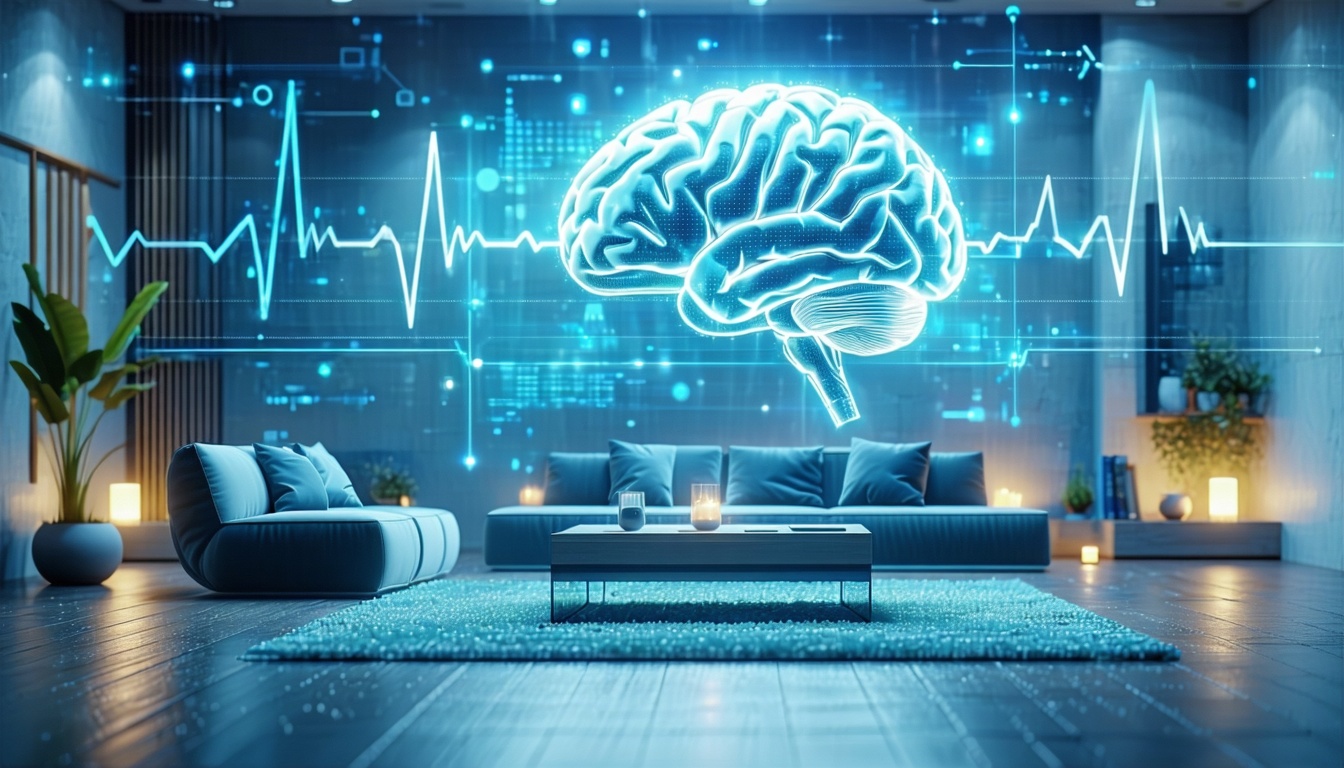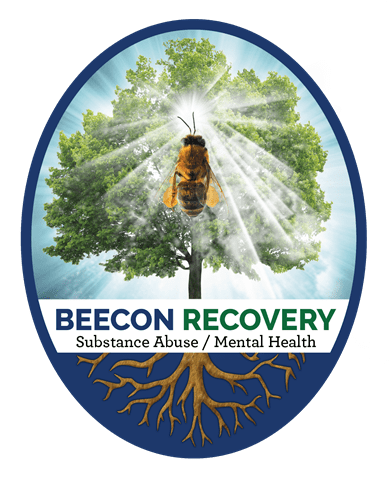Biofeedback Techniques in Emotional Regulation
Understanding Biofeedback in Recovery
Biofeedback is a therapeutic approach that helps individuals gain awareness and control over physiological functions often linked to emotional responses. By utilizing real-time data about bodily processes such as heart rate, muscle tension, and brain activity, we empower individuals to learn how to modify these responses, thus enhancing their emotional regulation. This technique plays an essential role in recovery, allowing clients to identify stressors and react to them in healthier ways. Through biofeedback, we provide a supportive environment that fosters self-discovery and personal growth.
Importance of Emotional Regulation in Recovery Journey
Emotional regulation is crucial in the recovery journey from substance use disorders and mental health challenges. It allows individuals to effectively cope with stressors, manage cravings, and navigate emotional upheaval without resorting to unhealthy behaviors. Research shows that individuals with strong emotional regulation skills are more likely to sustain their recovery and lead fulfilling lives.
To illustrate the importance of emotional regulation, consider the table below showing the correlation between emotional regulation skills and recovery outcomes:
| Emotional Regulation Skills | Recovery Success Rate (%) |
|---|---|
| Poor | 30 |
| Average | 65 |
| High | 85 |
As indicated, mastery of emotional regulation significantly enhances the likelihood of a successful recovery.
Role of Biofeedback in Enhancing Emotional Regulation
Biofeedback provides tools that can significantly improve emotional regulation throughout the recovery process. By teaching clients to recognize and alter their physiological responses to emotional stimuli, we help them gain better control over their emotions and behaviors. Some of the key benefits of using biofeedback for emotional regulation include:
- Increased self-awareness through monitoring physiological processes
- Development of coping strategies to manage anxiety and stress
- Enhanced ability to recognize triggers and emotional responses
- Improved focus and concentration during therapy sessions
This technique often complements other therapies found at Beecon Recovery, creating a comprehensive approach to emotional wellness. For instance, combining biofeedback with therapies such as neurofeedback therapy can provide even more profound insights and benefits.
Through these methods, we work to further the emotional well-being of our clients, assisting them in their paths to recovery, and fostering a sense of control and resilience.
Benefits of Using Biofeedback Techniques
Biofeedback techniques offer several advantages that significantly enhance emotional regulation during the recovery process. By helping individuals become more aware of their physiological responses, we can positively impact their overall emotional wellbeing. Here, we outline the key benefits that biofeedback techniques provide.
Stress Management
One of the primary benefits of biofeedback techniques is their efficacy in managing stress. By using sensors to measure physiological functions such as heart rate, muscle tension, and skin temperature, individuals learn to identify their stress responses. This awareness enables them to employ relaxation techniques effectively, thereby reducing overall stress levels.
| Physiological Measure | Typical Stress Response | Biofeedback Technique Used |
|---|---|---|
| Heart Rate | Increased | Heart Rate Variability Training |
| Muscle Tension | Elevated | Progressive Muscle Relaxation |
| Skin Temperature | Decreased | Thermal Biofeedback |
Implementing these techniques helps improve coping mechanisms and establishes a more relaxed state of being, which is essential for recovery.
Anxiety Reduction
Biofeedback has also shown significant potential in reducing anxiety. As individuals monitor their physiological responses, they can recognize the onset of anxious feelings and apply relaxation strategies such as deep breathing or guided imagery. By gaining control over these reactions, clients can decrease anxious sensations and promote emotional stability.
| Anxiety Level Pre-Treatment | Anxiety Level Post-Treatment | Reduction (%) |
|---|---|---|
| 8/10 | 4/10 | 50% |
| 9/10 | 5/10 | 44% |
| 7/10 | 3/10 | 57% |
Clients often report feeling more secure and capable of handling challenging situations, which is pivotal in their journey toward recovery.
Self-Awareness and Self-Regulation
Another essential advantage of biofeedback techniques lies in promoting self-awareness and self-regulation. By understanding their physiological states, individuals gain insights into their emotions and behaviors, which helps them respond more thoughtfully to stressors rather than reacting impulsively.
As we work with clients through biofeedback, they develop skills such as setting personal goals and practicing mindfulness. This newfound ability fosters increased resilience and encourages proactive rather than reactive coping strategies.
| Key Skills Developed | Description |
|---|---|
| Goal Setting | Establishing achievable emotional regulation goals. |
| Mindfulness | Being present and aware of current feelings and reactions. |
| Emotional Intelligence | Understanding and managing emotions effectively. |
These skills not only enhance emotional regulation but also support long-term recovery by empowering individuals to take charge of their emotional health.
By choosing Beecon Recovery in Utah, individuals can embrace these biofeedback benefits as part of their journey toward improved emotional well-being. We are committed to integrating these techniques within our therapeutic approaches, ensuring that clients receive the highest quality substance use disorder and mental health treatment. For further understanding, explore our articles on what is neurofeedback therapy and how does it aid addiction recovery? and integrating guided imagery into substance abuse treatment plans.
Implementing Biofeedback Techniques at Beecon Recovery
At Beecon Recovery, we understand that every individual’s journey is unique. This is why we prioritize the implementation of biofeedback techniques tailored specifically to enhance emotional regulation in recovery. Below are the key components of this integral part of our treatment approach.
Customized Biofeedback Programs
We offer personalized biofeedback programs designed to meet the specific needs of each individual. Our team of professionals assesses the unique emotional and physiological responses of our clients to create a program that aligns with their recovery goals.
Our customized programs may include:
| Program Feature | Description |
|---|---|
| Individual Assessments | We conduct thorough evaluations to determine the most relevant biofeedback techniques for each client. |
| Tailored Sessions | Each session focuses on issues pertinent to the client’s recovery journey, addressing stress, anxiety, or emotional regulation. |
| Ongoing Adjustment | We continuously monitor progress and adjust the program as needed, ensuring optimal outcomes. |
This personalized approach allows us to effectively address emotional challenges and enhance coping strategies in recovery. For more information on related techniques, check out our article on what is neurofeedback therapy and how does it aid addiction recovery?.
Integration with Therapy Approaches
We believe in the power of a comprehensive treatment plan that combines biofeedback with traditional and holistic therapy methods. At Beecon Recovery, we integrate biofeedback into a variety of therapeutic approaches to support emotional regulation and overall wellbeing.
Examples of integrated therapy methods include:
| Therapy Approach | Integration with Biofeedback |
|---|---|
| Amino Acid Therapy | Supports brain chemistry to enhance emotional stability during biofeedback sessions. |
| Guided Imagery | Aids relaxation and visualization, reinforcing skills learned through biofeedback. |
| Nutritional Support | Addresses physical health aspects that impact mental health and recovery, complementing biofeedback techniques. |
By combining these therapeutic modalities, we create a more holistic recovery experience that encourages lasting change. To explore the role of nutrition in this process, visit our article on the role of nutrition in supporting mental health and sobriety.
At Beecon Recovery, we are committed to utilizing biofeedback as a pivotal tool in enhancing emotional regulation. Our customized programs and integrated therapies ensure that each individual receives the highest quality treatment, guiding them towards a successful recovery journey.
Success Stories
Personal Experiences with Biofeedback
We have witnessed numerous transformative journeys through the implementation of biofeedback techniques at Beecon Recovery. Individuals struggling with emotional challenges have found new hope and resilience as they learned to regulate their emotional responses effectively.
For instance, one participant shared their experience with biofeedback therapy, stating, “In the beginning, I felt overwhelmed by my emotions. Through biofeedback, I learned how to connect my feelings to my physical responses, which empowered me to manage stress better.” This personal account highlights how the application of biofeedback can lead to significant improvements in emotional regulation.
The following table summarizes the positive changes reported by our clients who engaged with biofeedback techniques:
| Client Feedback | Before Biofeedback | After Biofeedback |
|---|---|---|
| Emotional Awareness | Low | High |
| Stress Perception | High | Moderate |
| Anxiety Levels | High | Low |
| Coping Strategies | Limited | Enhanced |
These positive outcomes demonstrate the powerful effect that biofeedback can have on emotional regulation during recovery.
Positive Impact on Emotional Wellbeing
The impact of biofeedback on emotional wellbeing has been remarkable in our community. With the insights gained from biofeedback sessions, individuals have developed better coping strategies, leading to improved mental health and overall quality of life.
Many clients report that by understanding their physiological responses to stress, they can intervene before anxiety escalates. One participant noted, “I used to feel like I was on an emotional rollercoaster. Now, thanks to biofeedback, I recognize the signs early and take action to calm myself before it spirals out of control.”
In evaluating emotional wellness pre- and post-biofeedback, we have compiled the following data from our clients:
| Emotional Wellbeing Aspect | Pre-Biofeedback Assessment | Post-Biofeedback Assessment |
|---|---|---|
| Overall Life Satisfaction | 3/10 | 8/10 |
| Relationship Quality | 4/10 | 7/10 |
| Engagement in Activities | 2/10 | 6/10 |
| Resilience in Stressful Situations | 3/10 | 8/10 |
The statistics reveal a significant improvement in emotional wellbeing factors, showcasing how biofeedback techniques enhance emotional regulation in recovery.
Through these personal experiences and observable progress, we at Beecon Recovery remain committed to using biofeedback as a vital tool in our comprehensive approach to treatment. For additional insights into our holistic techniques, explore articles on what is neurofeedback therapy and how does it aid addiction recovery? and integrating guided imagery into substance abuse treatment plans.
Our Commitment to Effective Treatment
At Beecon Recovery, we prioritize a comprehensive approach to recovery, ensuring that our clients receive the highest quality of care tailored to their individual needs. Our commitment is reflected in our integrative treatment models that include both traditional and holistic therapies.
Comprehensive Approach to Recovery
We understand that recovery encompasses more than just abstaining from substances. It involves addressing the emotional, psychological, and physical well-being of our clients. Our multidisciplinary team collaborates to create personalized treatment plans that incorporate various therapeutic modalities, including what is neurofeedback therapy and how does it aid addiction recovery?, the science behind ketamine-assisted therapy for mental health, and amino acid therapy: rebuilding brain chemistry after addiction.
| Treatment Modalities | Description |
|---|---|
| Neurofeedback | Training the brain to self-regulate through real-time feedback. |
| Ketamine Therapy | Utilizing ketamine for rapid relief from mental health symptoms. |
| Amino Acid Therapy | Supporting brain chemistry with essential amino acids. |
| Holistic Practices | Integrating mind-body connection therapies for enhanced recovery. |
Continual Support and Progress Monitoring
An integral part of our recovery framework is ongoing support and progress monitoring. We believe that recovery is a journey that requires continuous engagement. Our team regularly reviews clients’ progress, adjusting treatment plans as necessary to ensure optimal outcomes.
We implement various strategies to monitor improvement, such as regular assessments, feedback sessions, and incorporating therapies like live blood cell analysis: a window into your health during recovery and integrating guided imagery into substance abuse treatment plans. These approaches allow us to identify advancements in emotional regulation and overall well-being.
| Monitoring Techniques | Frequency |
|---|---|
| Client Assessments | Weekly |
| Progress Review Meetings | Bi-weekly |
| Therapy Adjustments | As needed |
Our personalized, comprehensive approach ensures that clients are equipped with the tools and support they need throughout their recovery journey, enhancing their ability to achieve long-term sobriety and emotional stability. Additionally, we emphasize the importance of the mind-body connection through strategies that promote both physical and mental health, including the role of nutrition in supporting mental health and sobriety and mind-body connection: the impact of holistic practices on relapse prevention.






